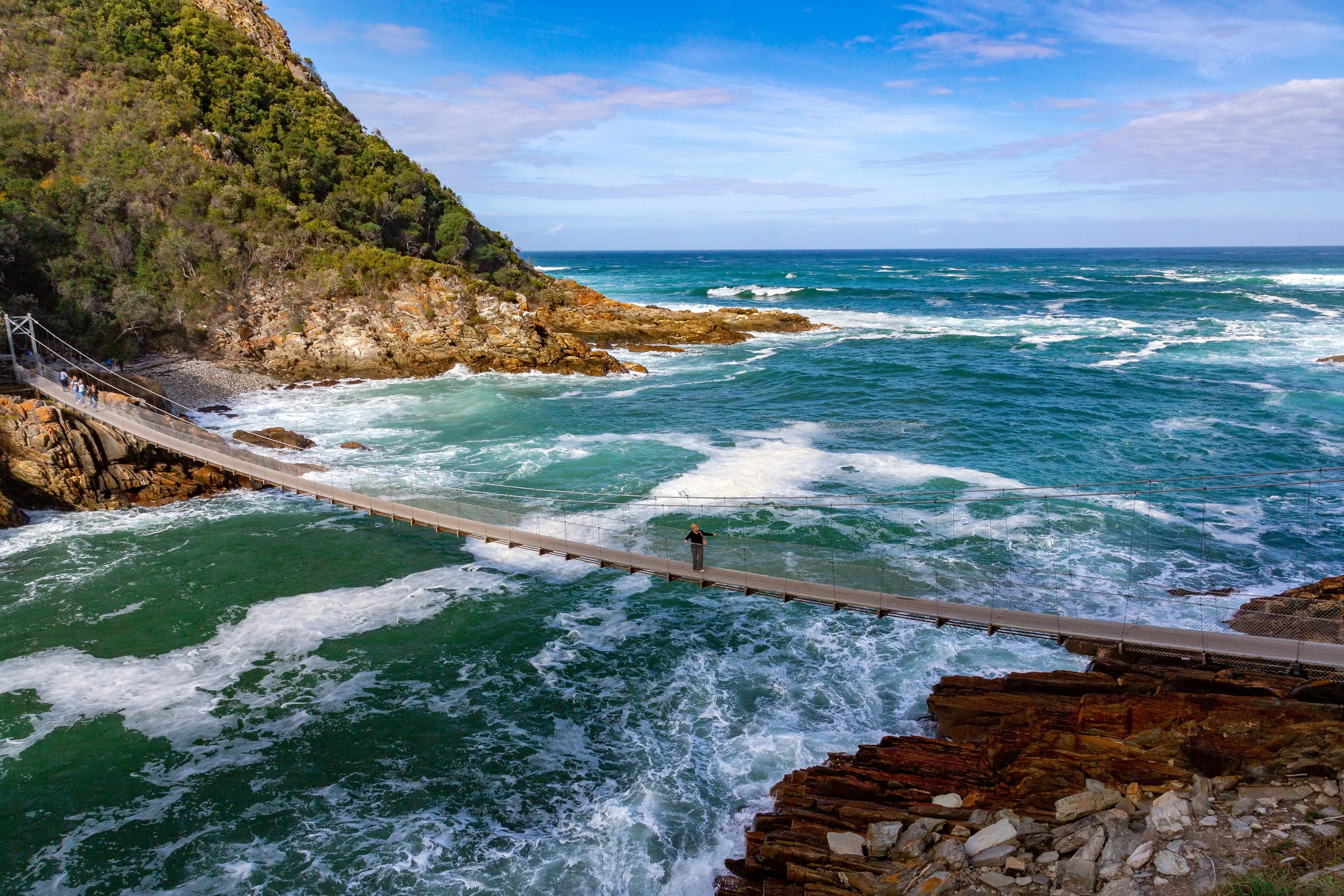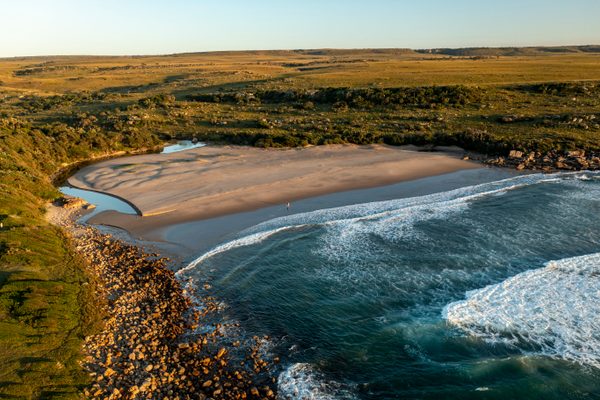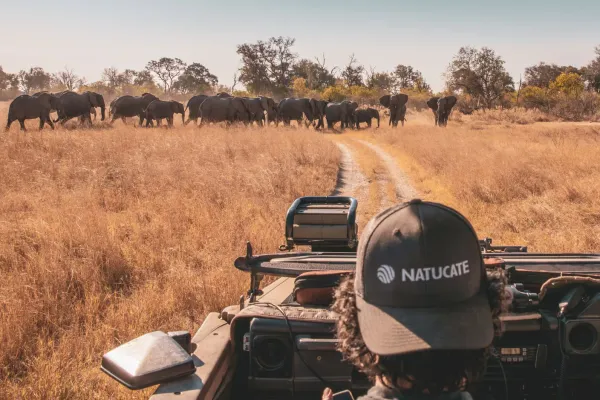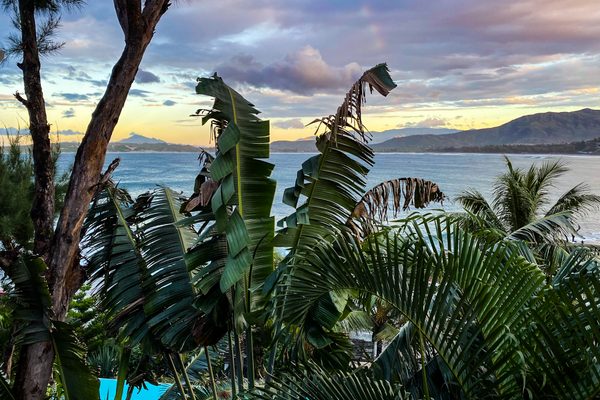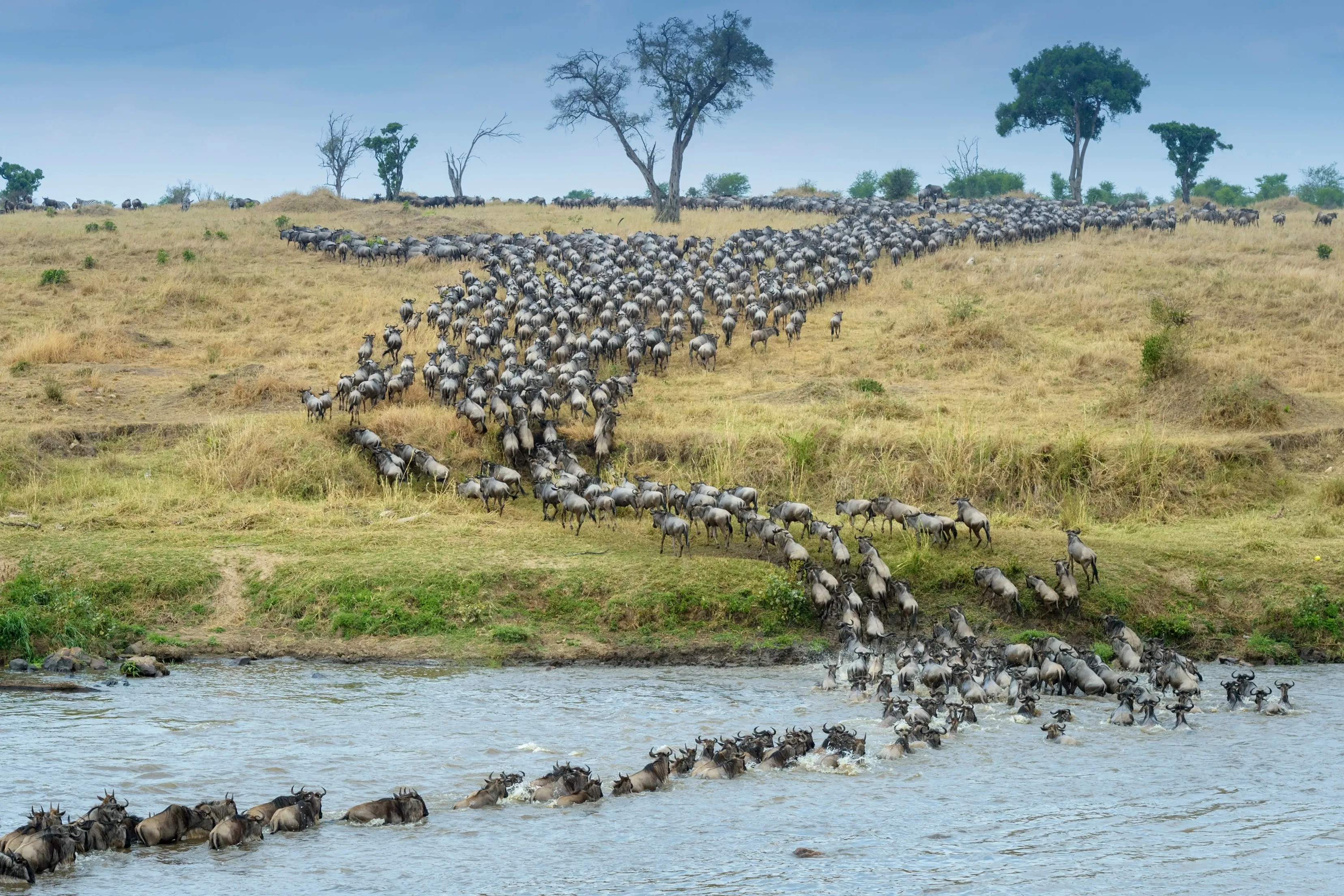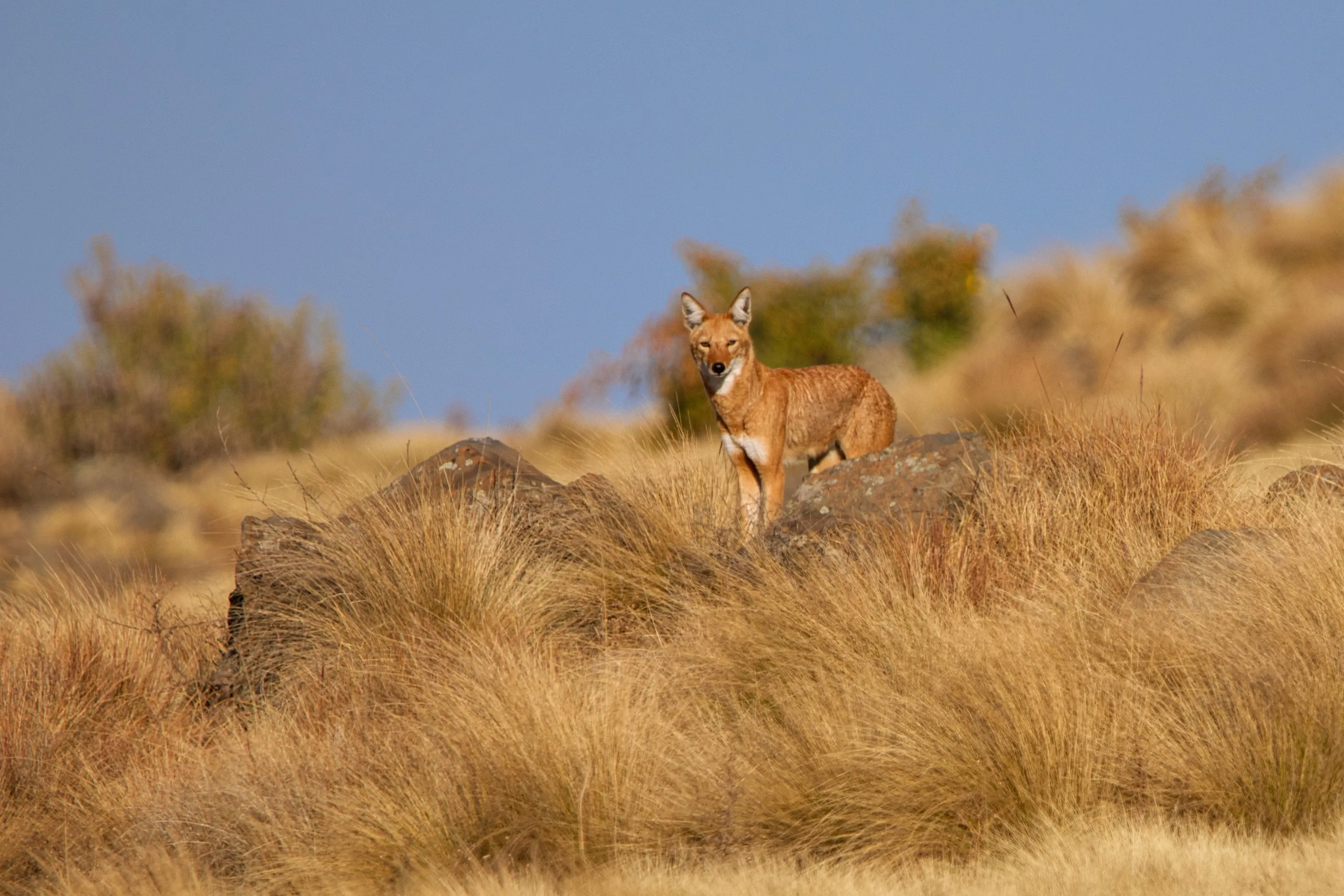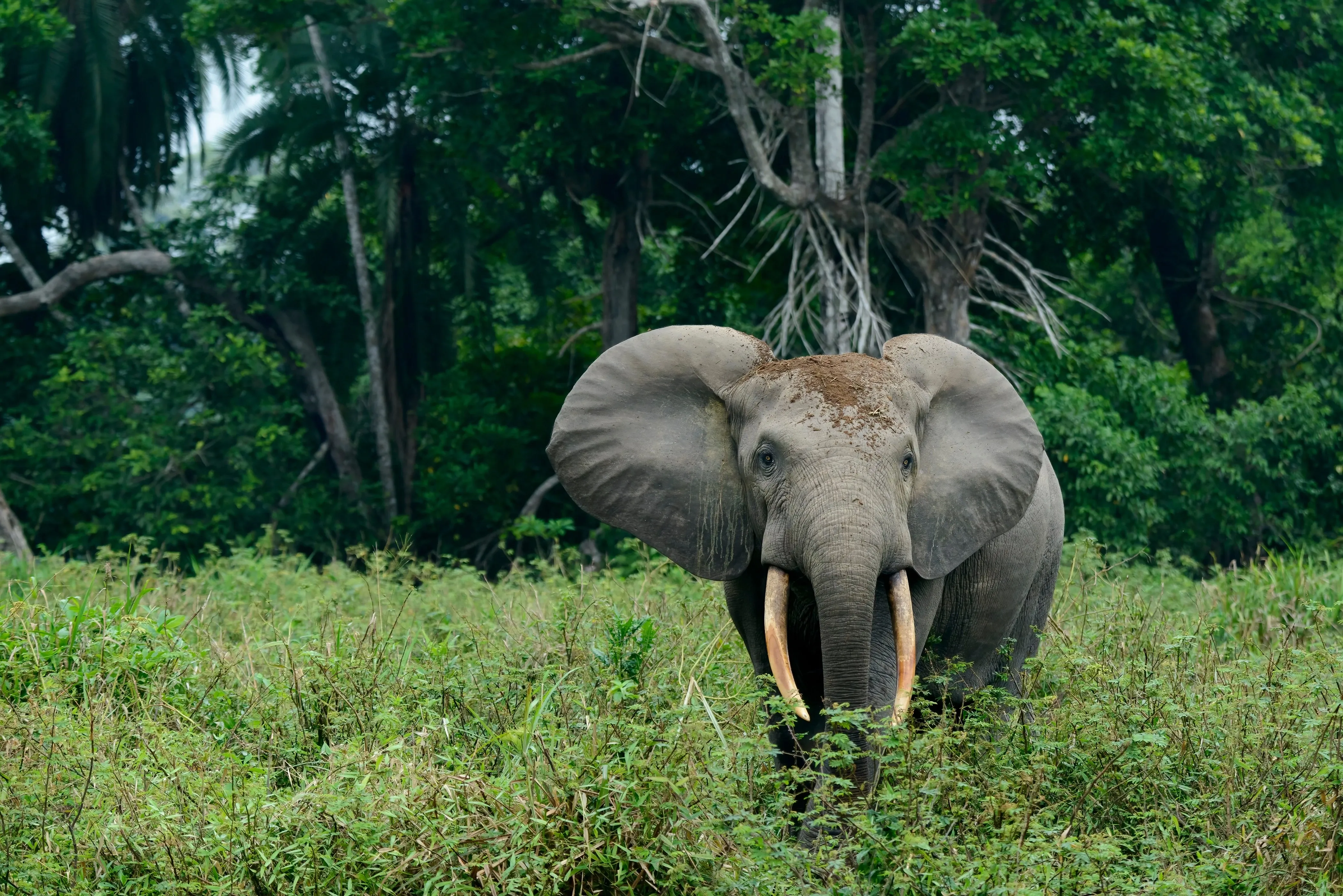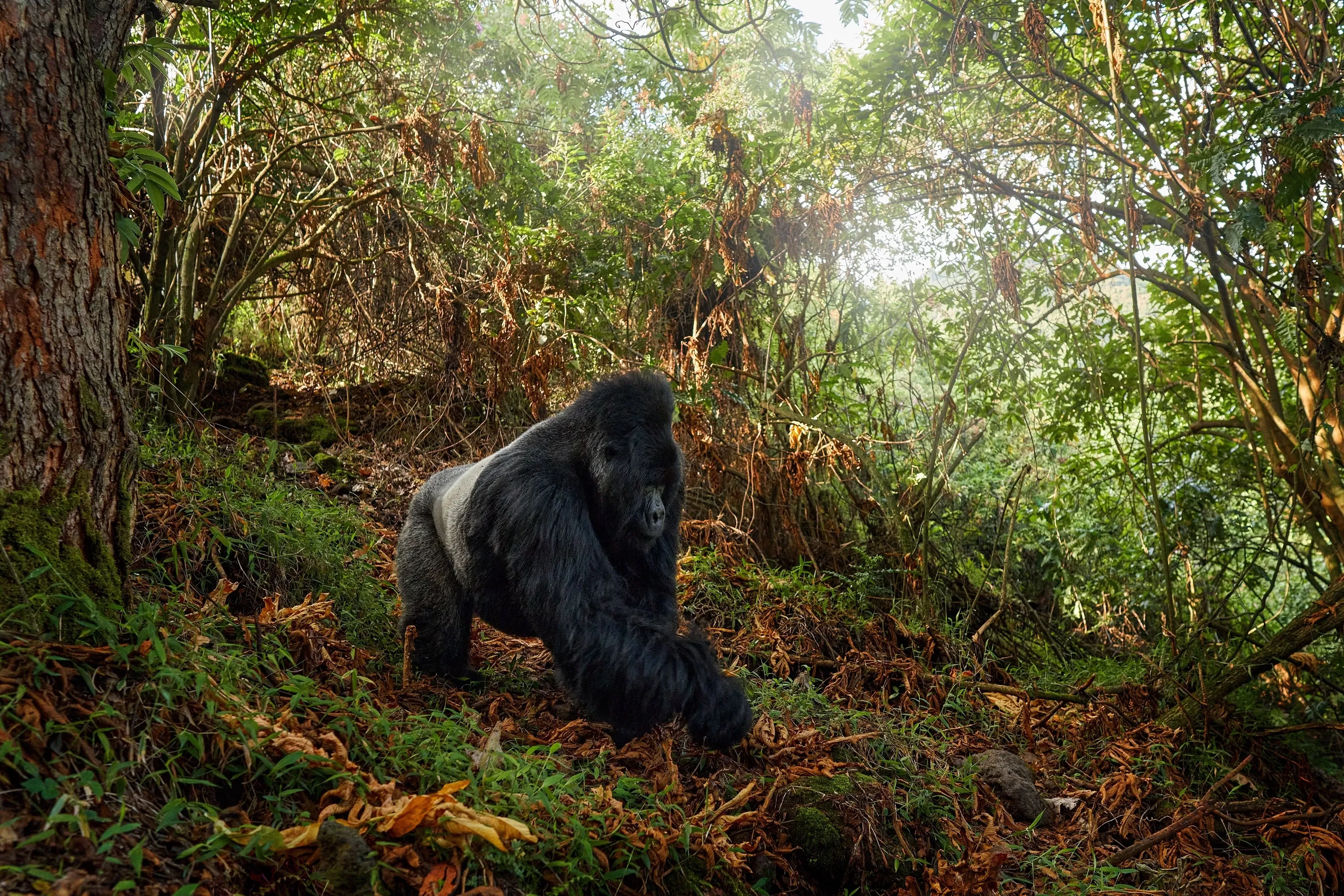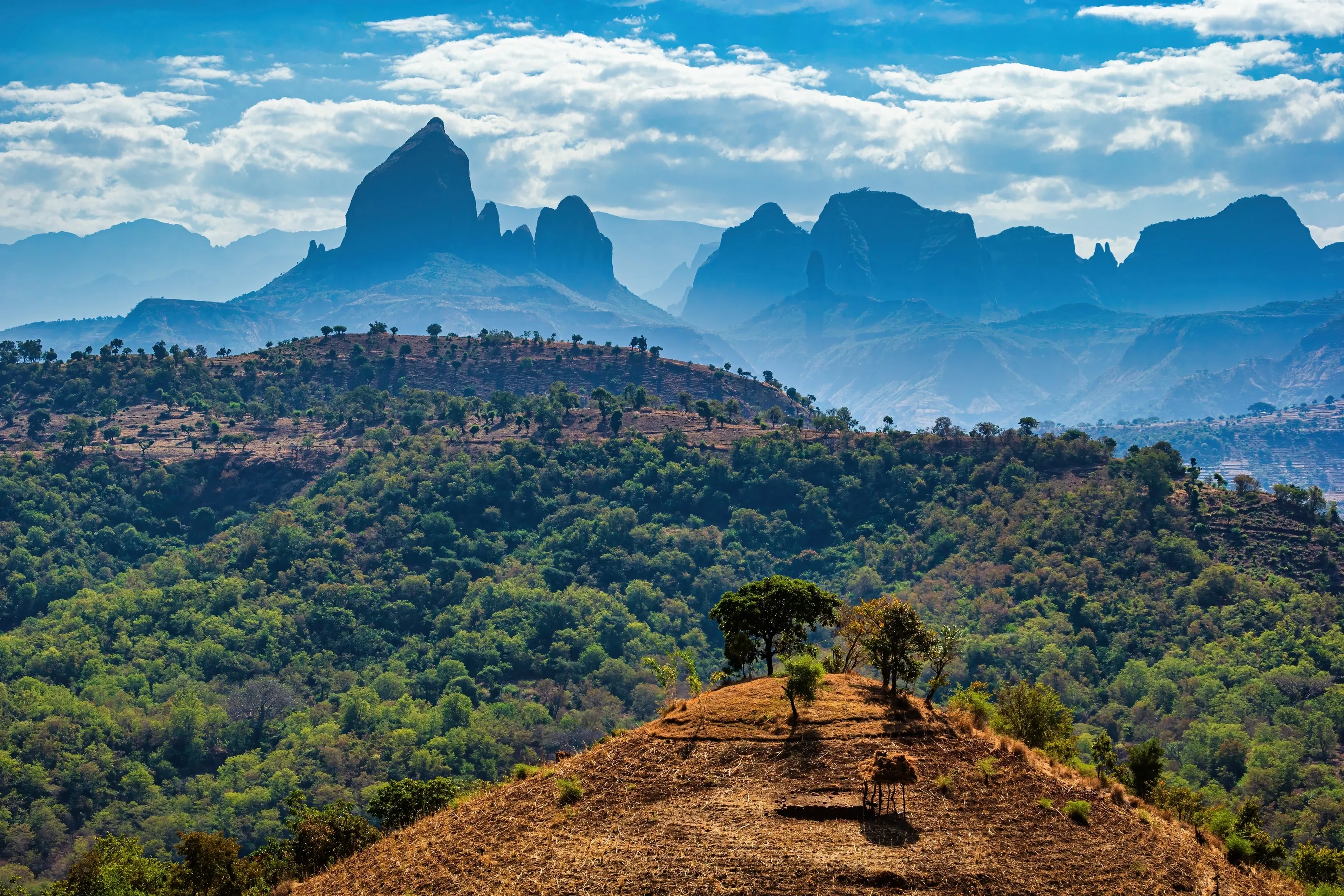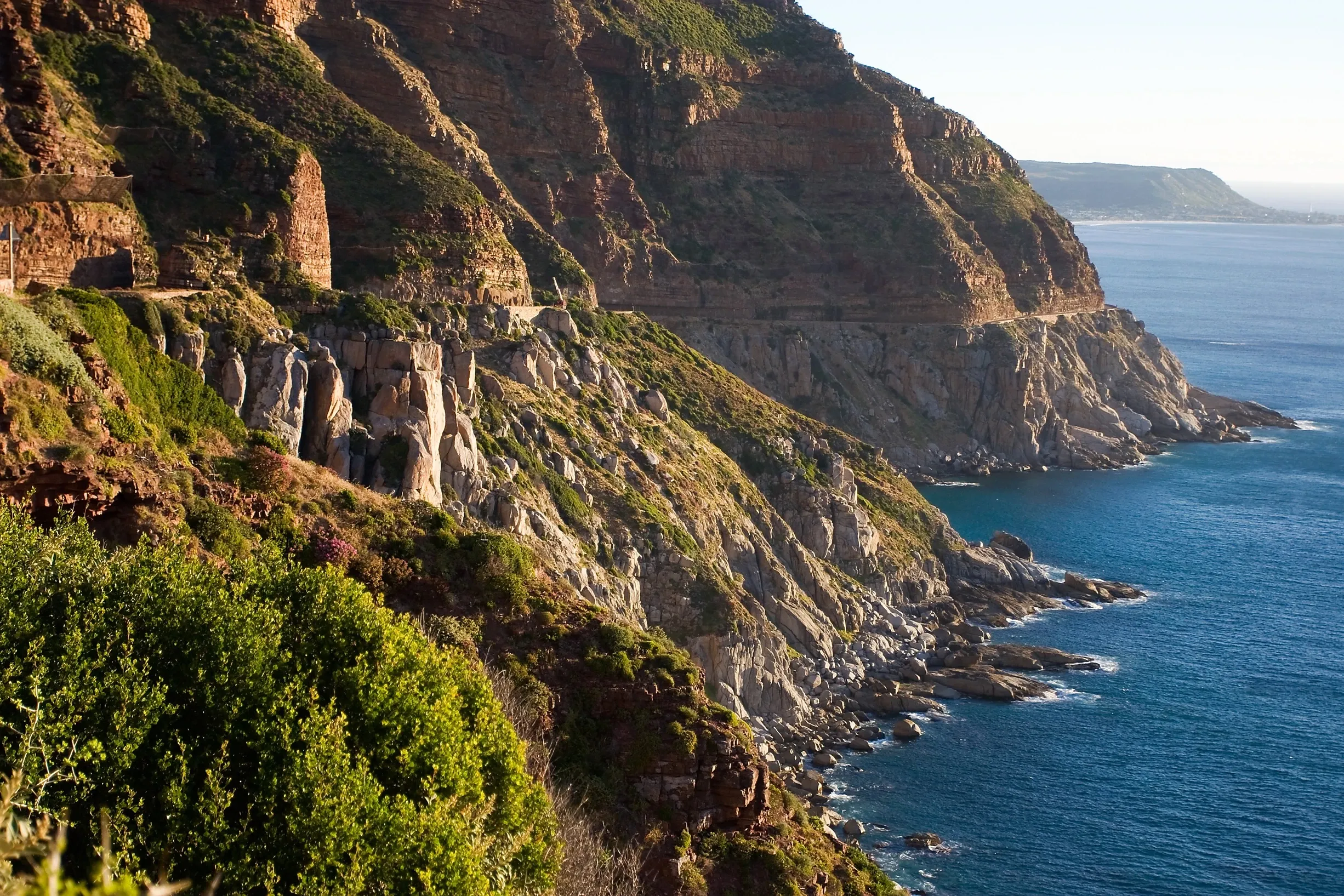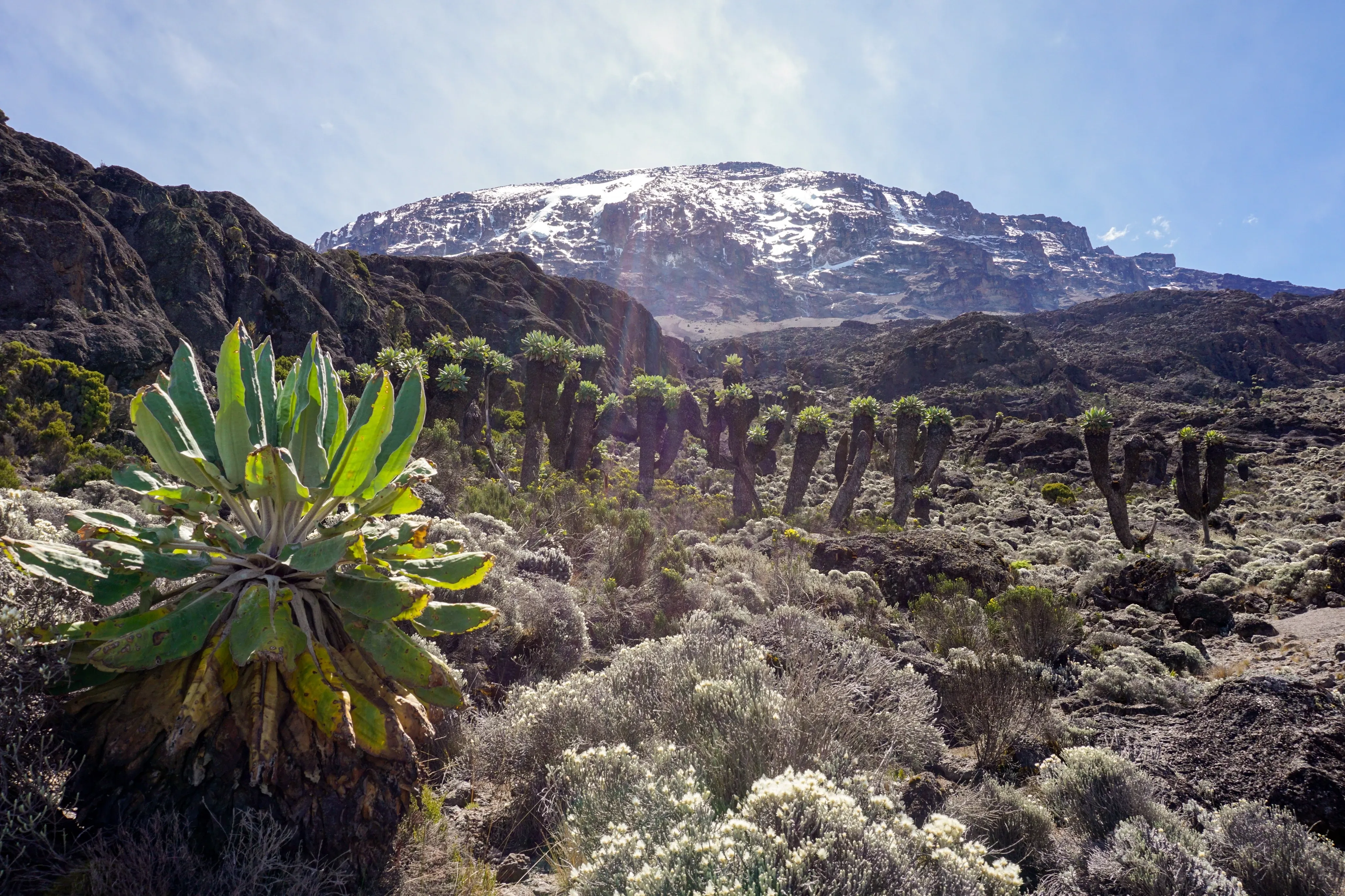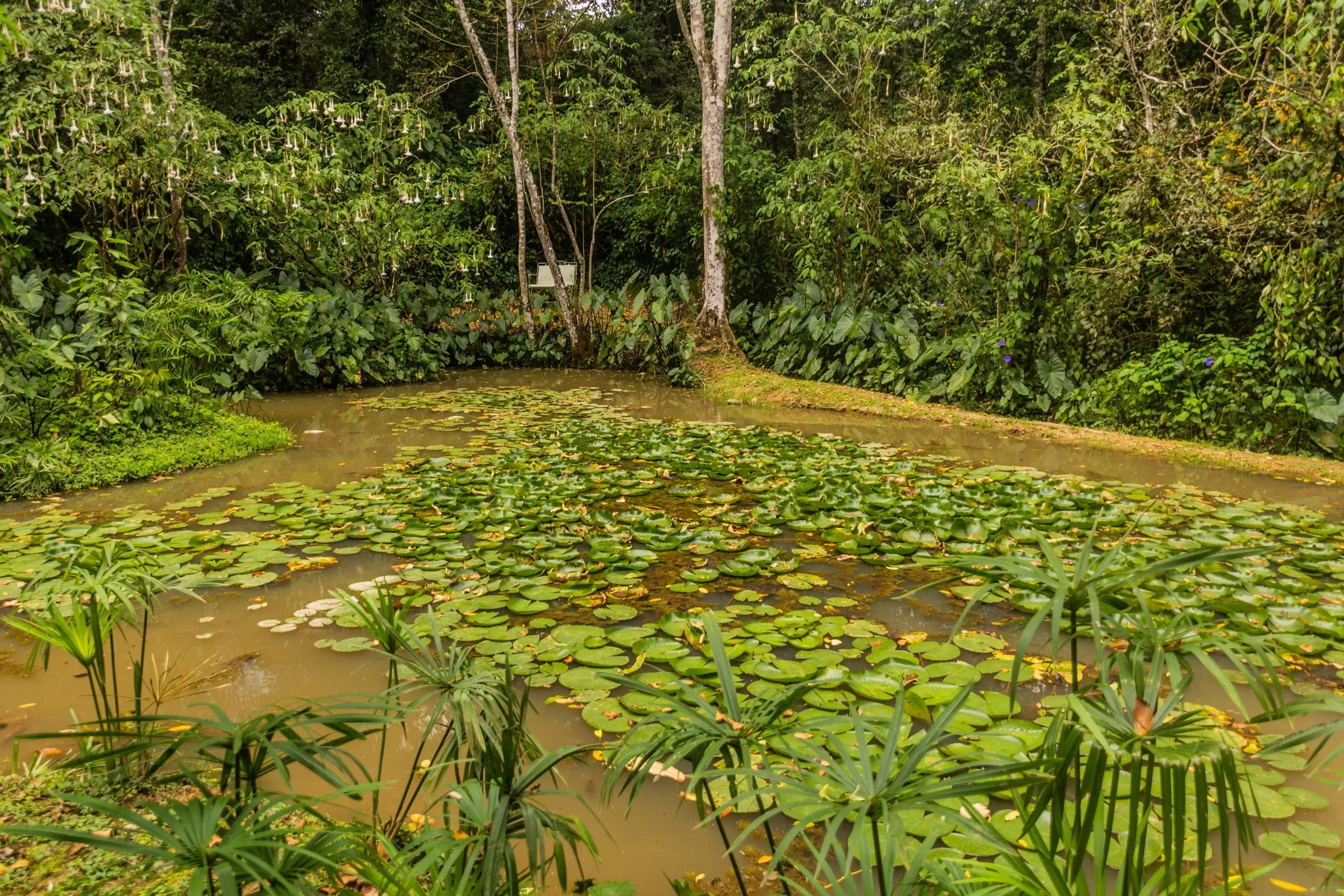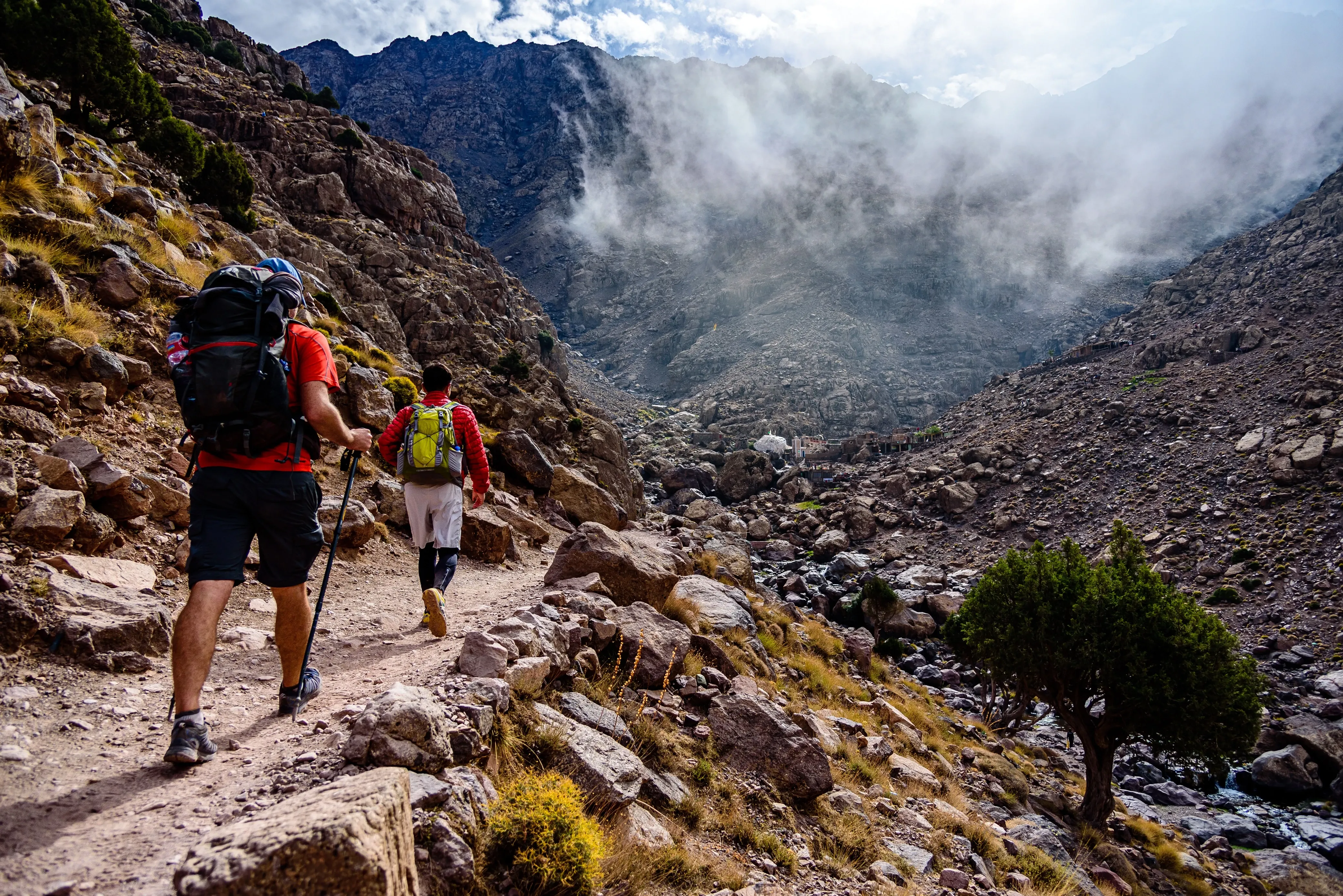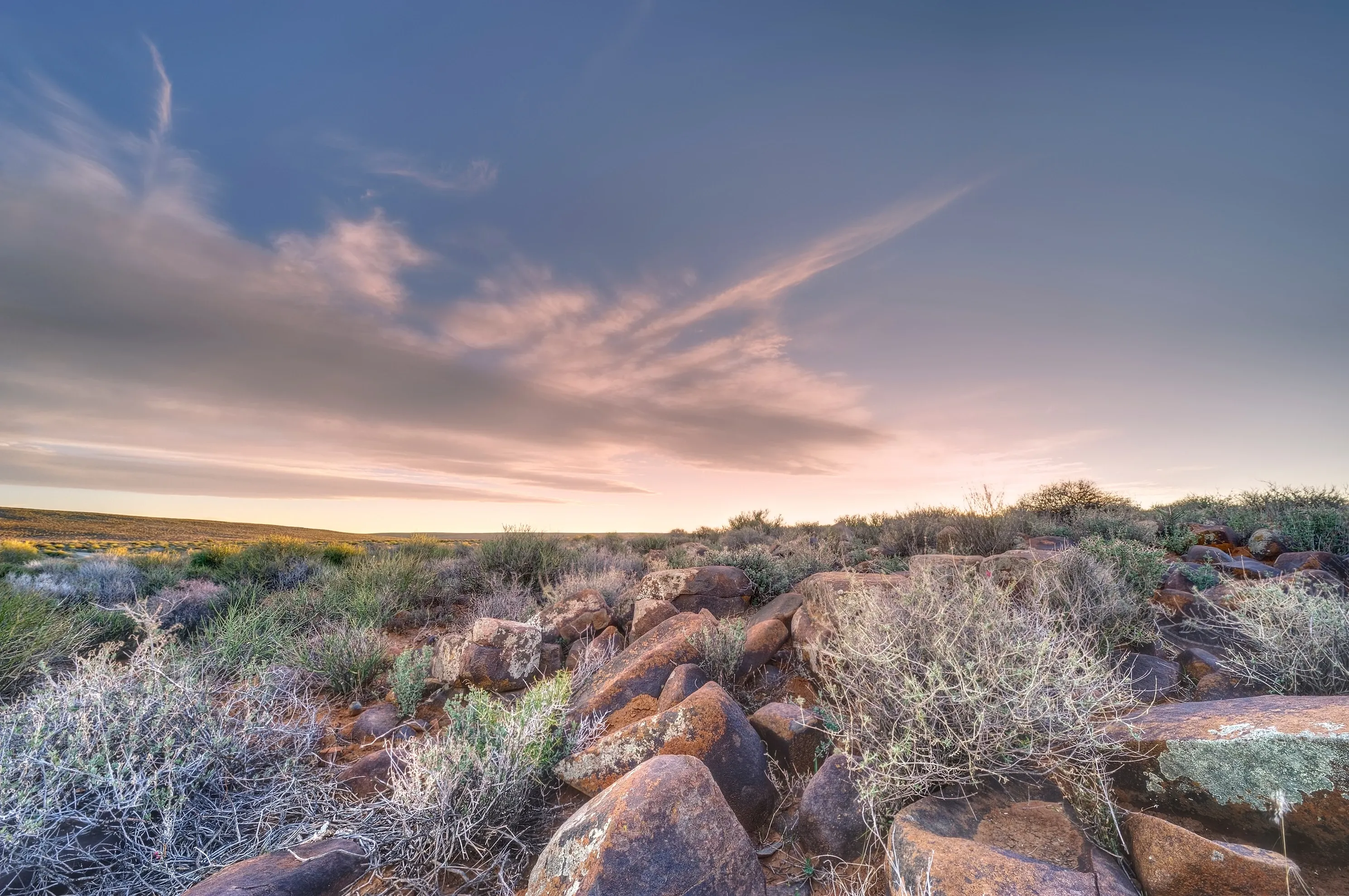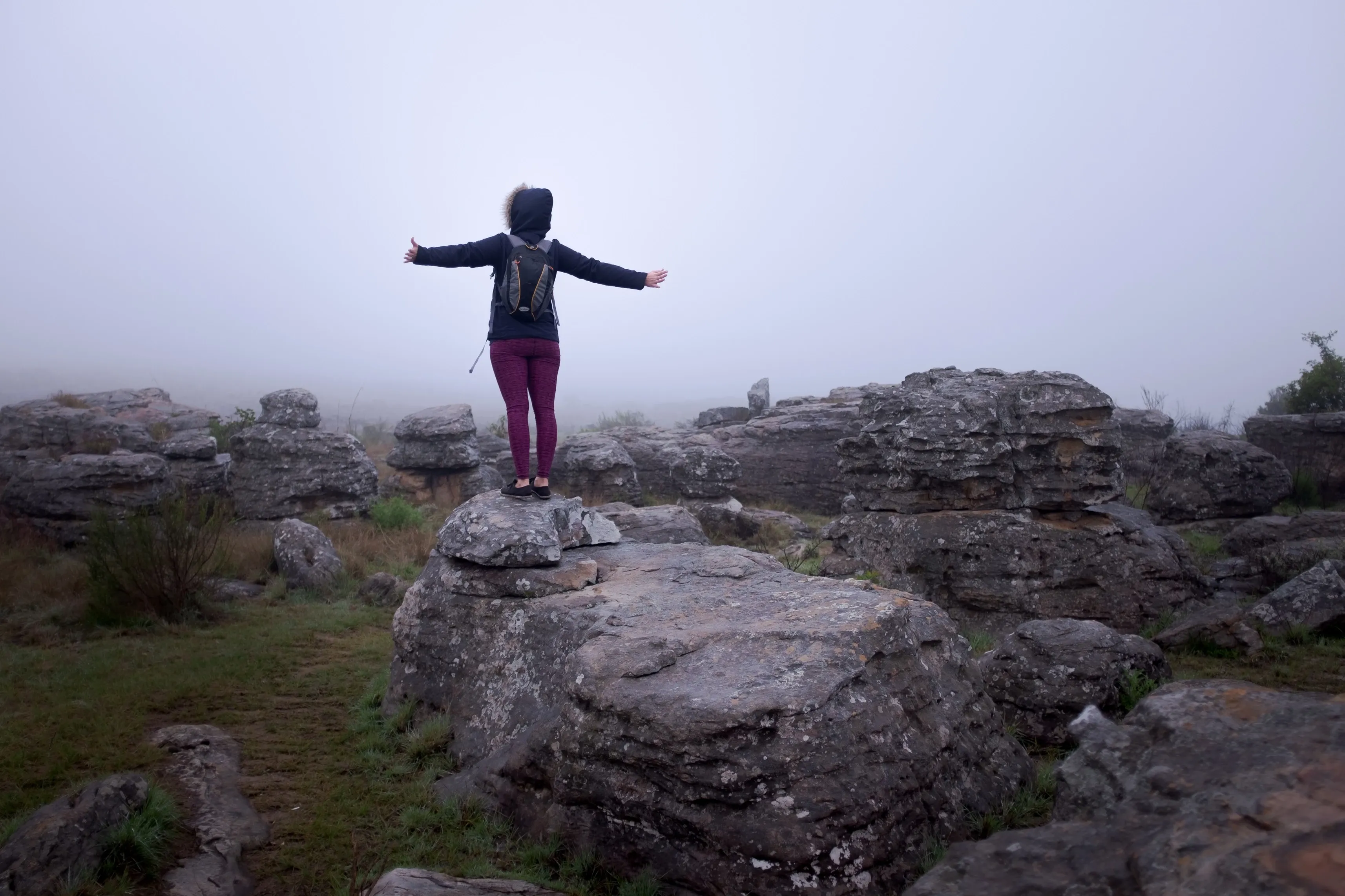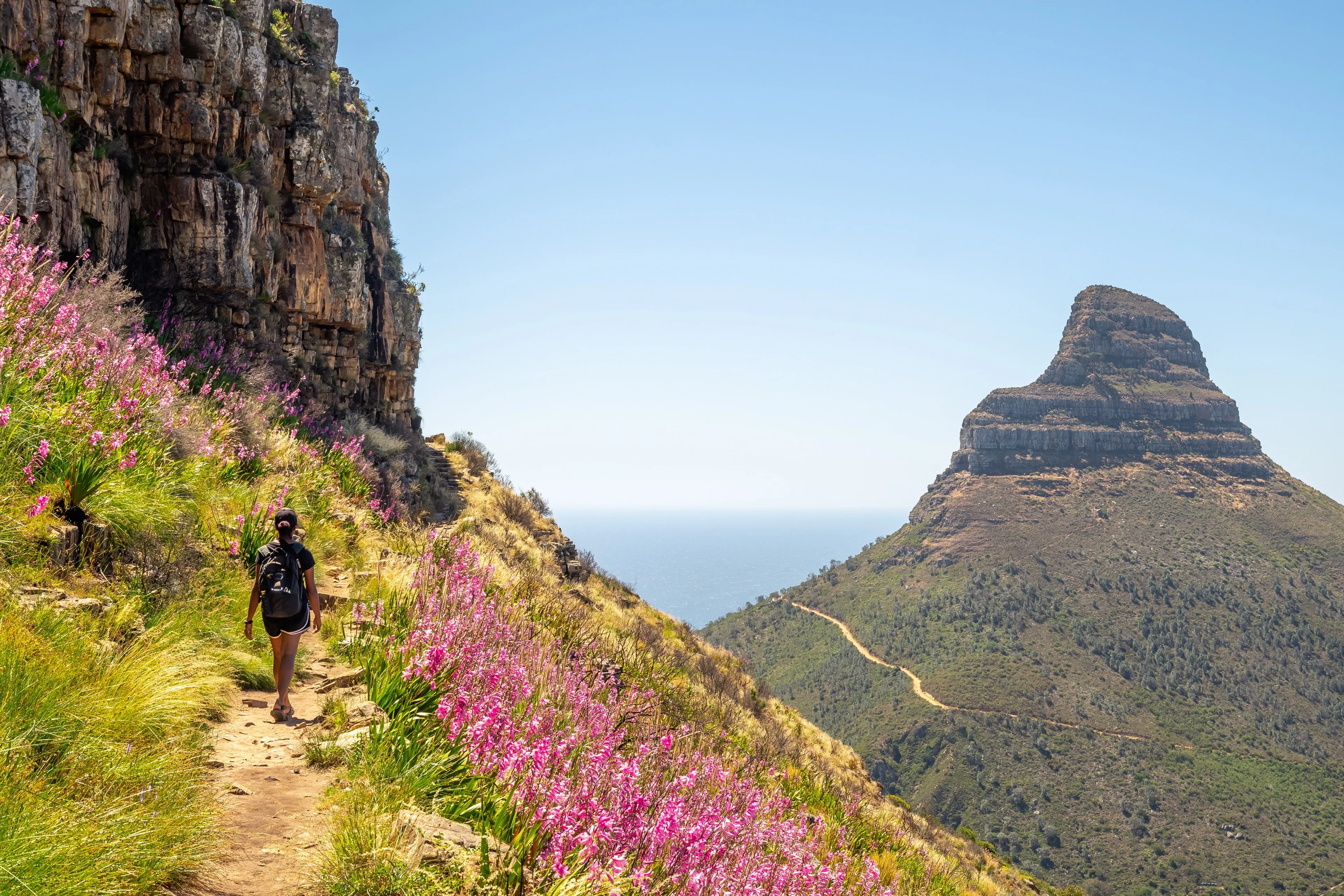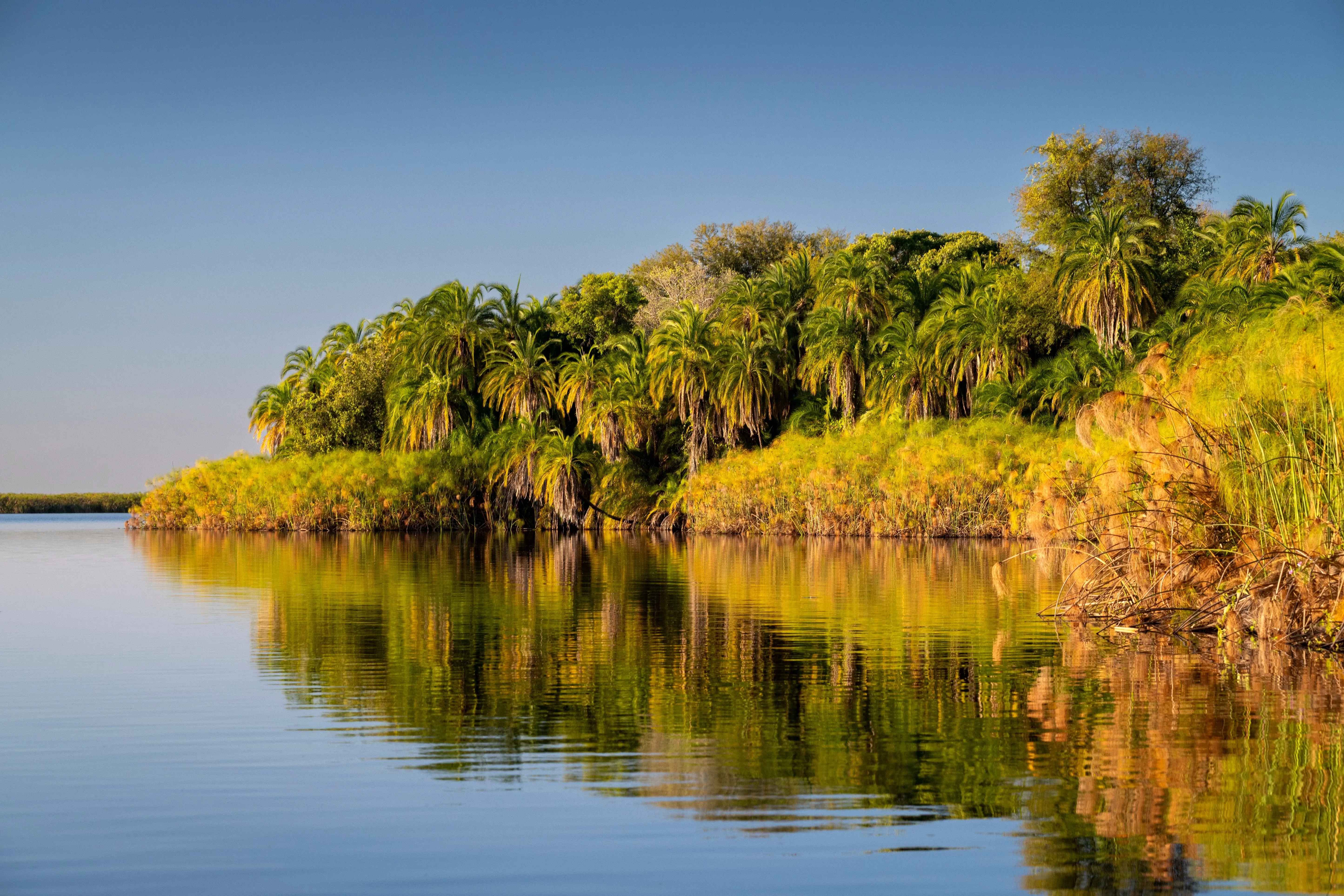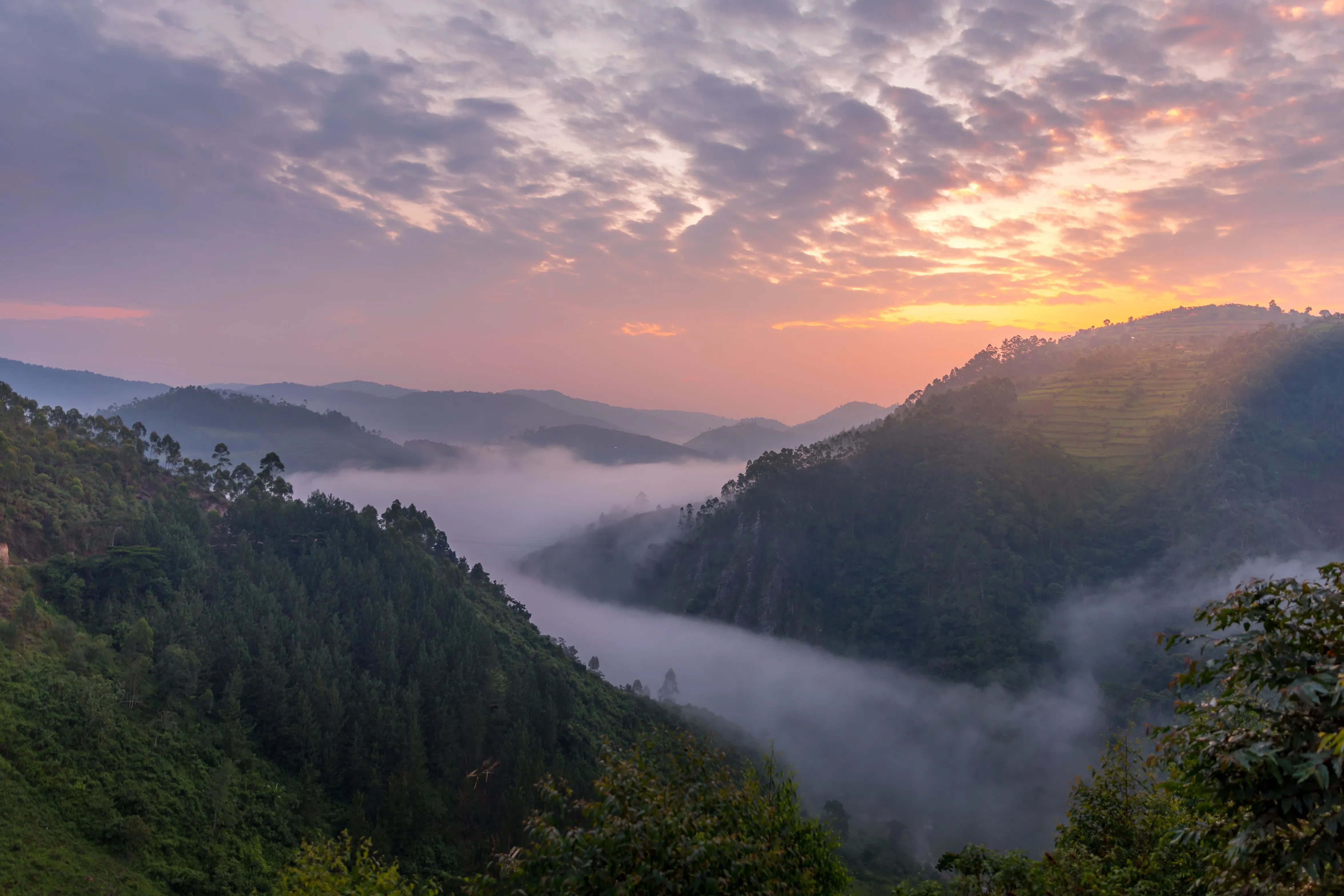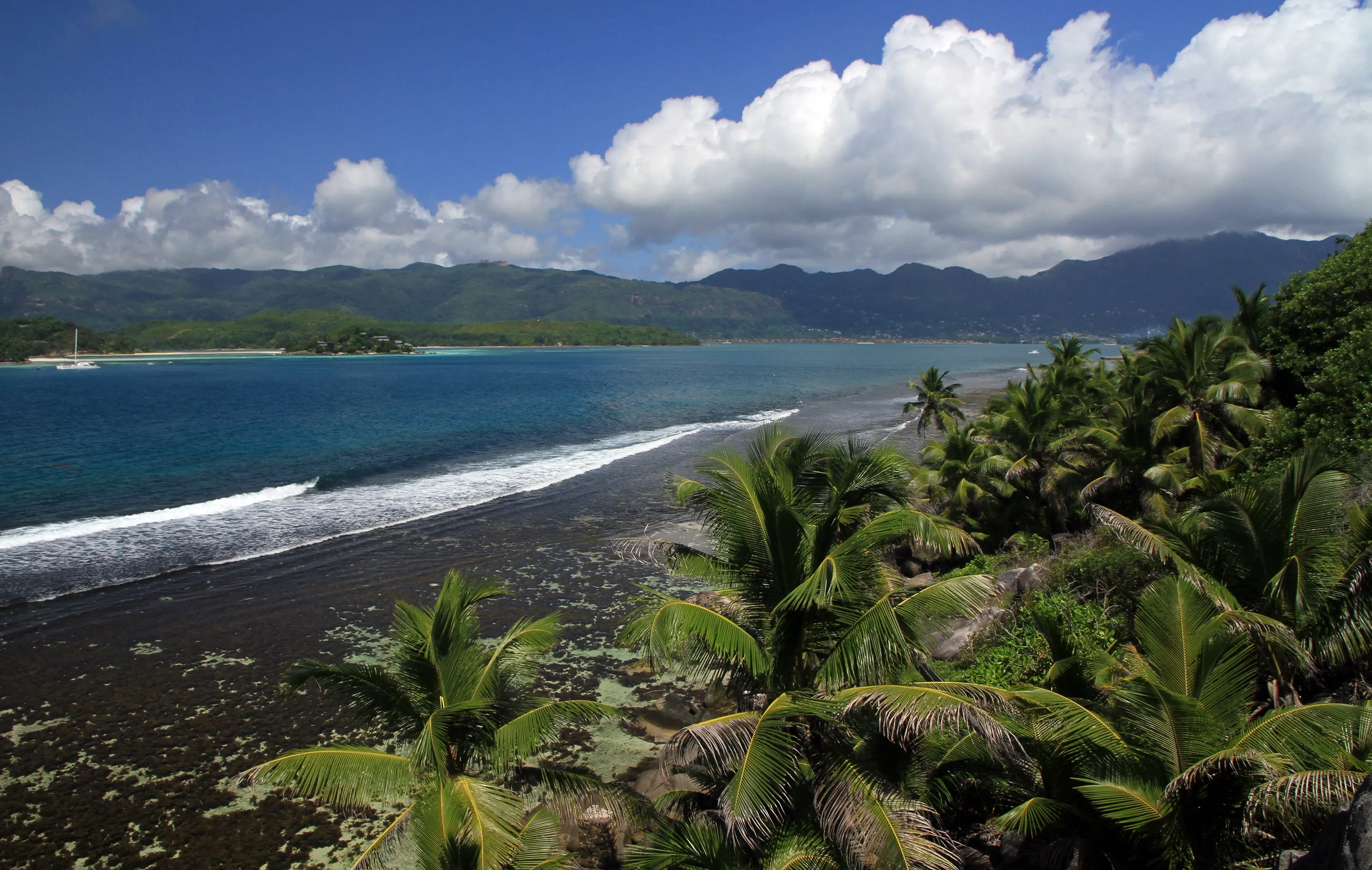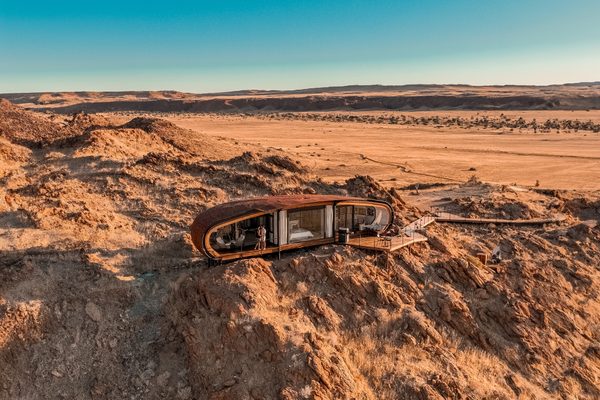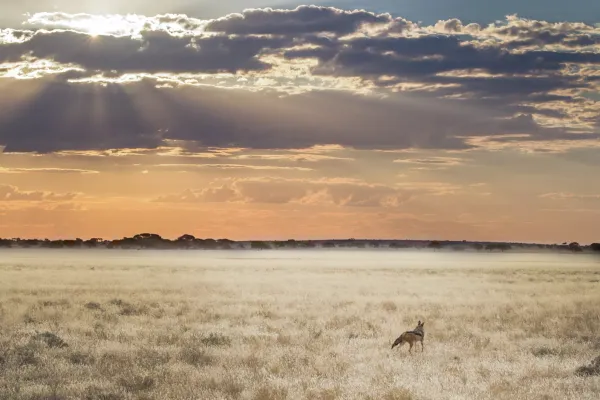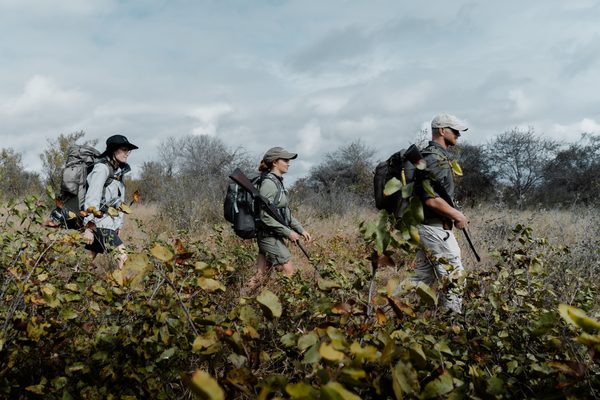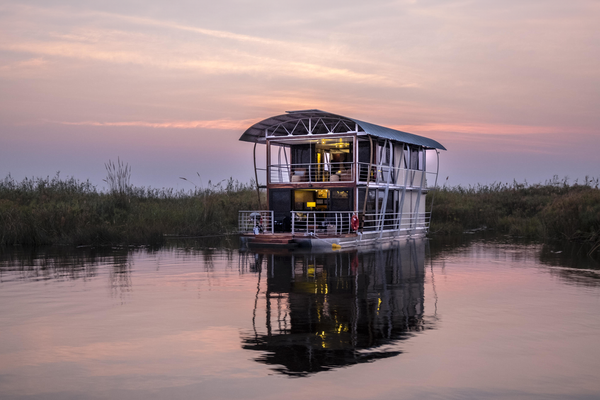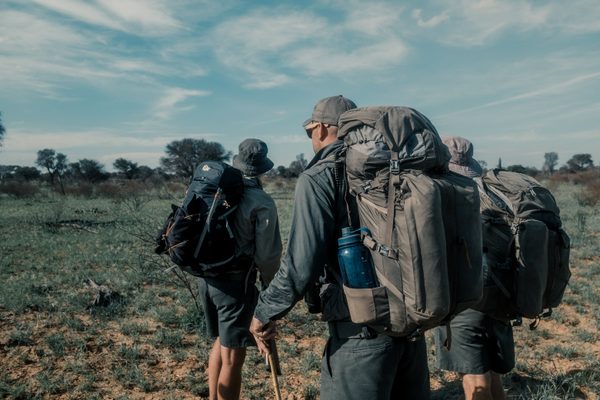Nature travel in Africa
Africa offers wild and untouched landscapes with spectacular natural wonders. From hot deserts and tropical rainforests to impressive mountain and rock formations, white sandy beaches, and colourful coral reefs, roaring waterfalls, vast lakes, some of the longest rivers in the world to a unique flora and fauna.
Africa provides the foundation for unforgettable nature trips across the continent known as the cradle of life.

The rawness of this continent can be felt in every corner, making natural phenomena like the Okavango Delta, the Virunga Mountains, or the vastness of the Serengeti even more impressive.
Nature and adventure enthusiasts will find something in every part of Africa that will captivate them and bring unforgettable experiences. From the fine sandy beaches of Zanzibar, the baobab forests of Madagascar, or the indescribable diving spots in the Seychelles, the islands around Africa also offer a biodiversity that is hard to find elsewhere.
Besides impressive natural wonders, a nature and adventure trip in Africa also include many trails and cultural sites of past stories and the origins of human kind.
Travelling Africa - Untouched nature
Africa is especially known for its fascinating flora and fauna, vast landscapes, vibrant deserts, misty rainforests, and sandy coastal areas. Remarkable species of plants and animals can be found in all regions of Africa, contributing to unforgettable memories during nature and adventure trips.
Animal lovers have the opportunity to witness spectacular animal migrations of zebras and wildebeests in the Serengeti in Tanzania or the Masai Mara, encounter mountain gorillas in the mist of the Virunga Mountains at Volcanoes National Park in Rwanda, spot a small population of forest elephants in Odzala National Park in Congo, sit with chimpanzees in the forest of Gabon, see the endangered Ethiopian wolf in the Simien Mountains National Park in Ethiopia.

Spy the Pharaoh eagle-owl in the Moroccan desert, photograph a protected shoebill in Uganda, watch a leopard sleeping in the trees in the Okavango Delta in Botswana, watch wild dogs raising their pups in Luambe in Zambia, spot gray whales from the beach of Hermanus in South Africa, observe red ruffed lemurs during their daily grooming sessions on the Masoala-Peninsula of Madagascar, admire oryx on the red sand of the Namib Desert in Namibia, and encounter two of the seven sea turtle species while snorkeling in the Seychelles.
Through various nature trips in Africa, from round trips to adventure trips, many regions of Africa can be explored up close with all their remarkable facets.
Nature travels in Africa - Experiencing the African bush
Experience and discover nature in Africa—here, outdoor enthusiasts find a wide range of offerings. Africa's untouched nature can be discovered either as a private trip in a rental car, a converted off-road vehicle on your own or explored on a guided tour. There are many group trips available for all ages, where an experienced guide interprets and brings nature even closer.

The portfolio of offerings for nature or adventure trips in Africa is as diverse as the continent itself. There are options for guided, self-driving, mobile, hiking, or horseback safaris, bike , wine or overlanding tours, island hopping, and much more. Various regions can be connected with small charter flights, trains, boats, helicopters, hot air balloons, and quad bikes, enhancing the adventure even more.
The accommodation options in the country are just as diverse. From eco-friendly luxury resorts to nature-connected lodges, luxury tents, campsites, and even the possibility of sleeping under the open starry sky - everything is available. Accommodations range from city proximity to remote regions surrounded by nothing but wilderness, offering each nature traveller a variety of sleeping options and different adventure levels to immerse in Africa's nature.
»Africa is the mother of us all, the land from which we came. She has a rich and complex culture that we have yet to fully appreciate.«
Travelling Africa - Frequently Asked Questions
Why should I go on a nature trip in Africa?
Nature trips in Africa offer unforgettable experiences and create indescribable memories. The continent is known for its untouched nature and fascinating flora and fauna and offers insights into indigenous cultures such as the Maasai people in Kenya or the San people in Botswana.
Impressive natural phenomena include Victoria Falls in Zimbabwe, Lake Malawi in the warm heart of Africa, the pyramids in Egypt, dinosaur tracks in Namibia, and cave paintings in South Africa. During the day, the sun dictates time in these wild places, and at night, an impressive starry sky and the Milky Way appear in the firmament.
The Indian Ocean on the east coast and the Atlantic Ocean in the west dominate the continent's climate, alongside the famous Sahara Desert and the Kalahari, which contribute to Africa's unique life forms. Africa still lives in harmony with nature and invites you to slow down from the workday pace.

When is the best time to go on a nature trip in Africa?
The best time to travel to Africa varies by region and desired adventure. Here are some recommendations for different regions of the continent:
East Africa (Kenya, Tanzania, Uganda, Ethiopia)
- Best time to travel: June to October
- Reason: This is the dry season and the best time for wildlife viewing, including the famous Great Migration in the Serengeti in Tanzania and the Masai Mara in Kenya. The weather is pleasant, and the chances of seeing animals are high as they gather around the few water sources.
Southern Africa (South Africa, Namibia, Botswana, Zimbabwe, Seychelles)
- Best time to travel: : May to October
- Reason: This is also the dry season. During this time, daytime temperatures are pleasant, and wildlife viewing in national parks and game reserves is optimal. Highlights include the Kalahari Desert in South Africa, the Okavango Delta in Botswana, Hwange National Park in Zimbabwe, Fish River Canyon in Namibia, and North Island in the Seychelles. From November to April, southern Africa transforms into a green oasis, providing feeding and breeding grounds for migratory birds from Europe and Asia.
West Africa (Ghana, Senegal, Benin)
- Best time to travel: November to February
- Reason: Temperatures are milder, and there is less rain, making it more pleasant to explore cities, beaches, and cultural sites.

North Africa (Egypt, Morocco, Tunisia)
- Best time to travel: October to April
- Reason: Temperatures are cooler during these months, making travel more comfortable. Summers in North Africa can get extremely hot.
Central Africa (Congo, Gabon, Rwanda)
- Best time to travel: December to February and June to September
- Reason: These months fall into the dry season, making travel and wildlife viewing more favorable. The rainy season can make travel difficult and many roads impassable.
Special considerations:
- Safari: Generally, the dry season in many African regions is the best time for safaris as vegetation is less dense and animals are easier to spot.
- Beaches: For beach vacations in East Africa, particularly on islands like Zanzibar, June to October and December to March are ideal months.
- Mountain climbing: The best months for climbing Kilimanjaro are January to March and June to October when the weather is more stable. For the Drakensberg in South Africa or the Waterberg region in Namibia, it is advisable to climb from May to September due to the temperatures.
These recommendations provide a general orientation, but it is advisable to gather specific information for the exact travel destination and planned activities.
How long should I go on a nature trip in Africa?
Africa is vast and is often depicted much smaller on world maps. The continent offers an endless list of natural spectacles, places, and sights, all worth visiting. The travel duration depends entirely on the activities and expectations. A safari trip is worthwhile from one week—but it is advisable to book a longer stay for environmental consciousness.
It is possible to plan round trips in individual countries or regions. Those who dare to travel from the north down to the Cape should plan at least six months. Ideally, an adventure or nature trip should last at least two weeks up to several months.
Most nations do not require a visa for Southern Africa and can enter visa-free for up to 90 days. All travellers should check with their travel company or the foreign office to determine which countries require a visa, especially when visiting multiple countries on one trip.

Six unique natural destinations for your African nature adventure
Africa's diverse landscapes and ecosystems present a remarkable range of natural adventures for those eager to explore the continent's extraordinary beauty.
- Okavango Delta, Botswana: A premier destination for wildlife and bird enthusiasts, the Okavango Delta offers lush, ever-changing landscapes and exceptional game viewing and birding opportunities, including sightings of elephants, lions, hippos, African fish eagles, and Kori Bustards.
- Seychelles: Renowned for its pristine white sandy beaches and crystal-clear turquoise waters, Seychelles also features strong conservation efforts for endangered sea turtle species such as the hawksbill turtle and lush nature reserves like Vallée de Mai.
- Maasai Mara National Reserve, Kenya: Famous for the Great Migration, this reserve provides dramatic wildlife experiences as millions of wildebeest and zebras traverse the savanna.

- Kakum National Park, Ghana: Known for its exciting canopy walkway, Kakum National Park offers a unique perspective of the rainforest and its diverse flora and fauna from high above the forest floor.
- Victoria Falls, Zimbabwe/Zambia: Straddling the border between Zimbabwe and Zambia, Victoria Falls is one of the world's largest and most awe-inspiring waterfalls, offering dramatic views and a range of activities including bungee jumping and Zambezi river cruises.
- Drakensberg Mountains, South Africa: The Drakensberg Mountains feature breathtaking highland scenery with dramatic peaks and lush valleys, ideal for hiking and exploring the diverse flora and fauna of this stunning region.
Each destination showcases Africa's unique natural splendor, promising unforgettable experiences for all who venture there.
Five reason why you should consider a nature trip in Africa
- Unique wildlife experiences: Africa is home to some of the world's most iconic wildlife, including the Big Five (lion, elephant, buffalo, leopard, and rhino). Safaris in places like the Serengeti, Etosha, and Kruger National Park offer unparalleled opportunities to see these animals in their natural habitats.
- Stunning landscapes: The diverse landscapes of Africa, from the savannas and deserts to rainforests and mountain ranges, provide breathtaking scenery. Destinations like the Namib Desert, Victoria Falls, Mount Kilimanjaro, and the Okavango Delta offer unique and stunning natural beauty.
- Cultural richness: A nature trip in Africa often includes interactions with local communities and indigenous cultures. Experiencing the traditions, music, dance, and hospitality of tribes like the Maasai, Zulu, or Himba can add a rich cultural dimension to your trip.
- Adventure opportunities: Africa offers a range of adventure activities that cater to different interests. Whether it's trekking to see mountain gorillas in Uganda or Rwanda, hiking up Mount Kilimanjaro, white-water rafting on the Zambezi River, or exploring the vast dunes of the Namib Desert, there are plenty of thrilling experiences.
- Conservation and eco-tourism: Many African countries prioritize conservation and eco-tourism, offering travelers a chance to contribute to the preservation of wildlife and natural habitats. Visiting national parks, staying in eco-lodges, and participating in conservation projects help support these efforts and ensure sustainable tourism practices.
Sign up for the newsletter
By clicking on “Subscribe now” I will subscribe to the Conscious Explorer newsletter with all the information about mindful travel. Information on the success measurement included in the consent, the use of the shipping service provider MailChimp, logging of the registration and your rights of revocation can be found in our privacy policy.
